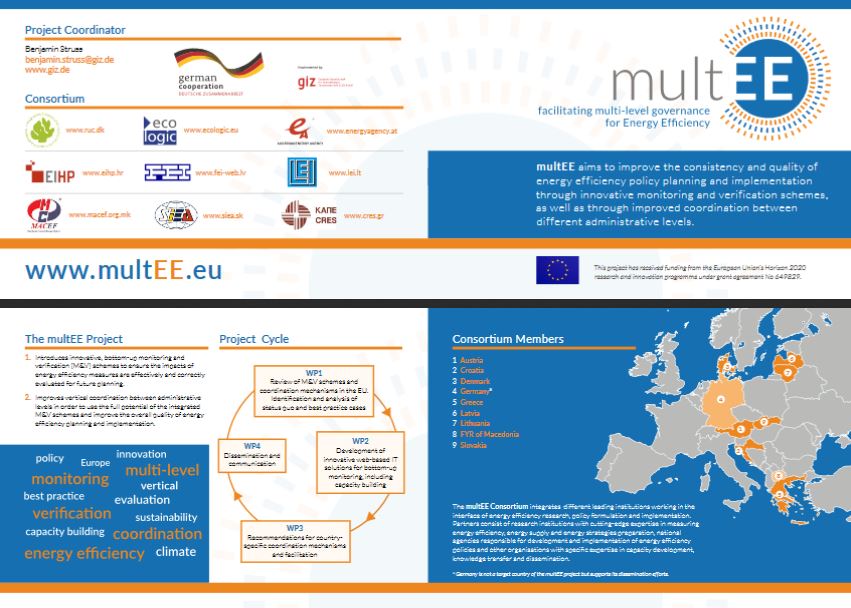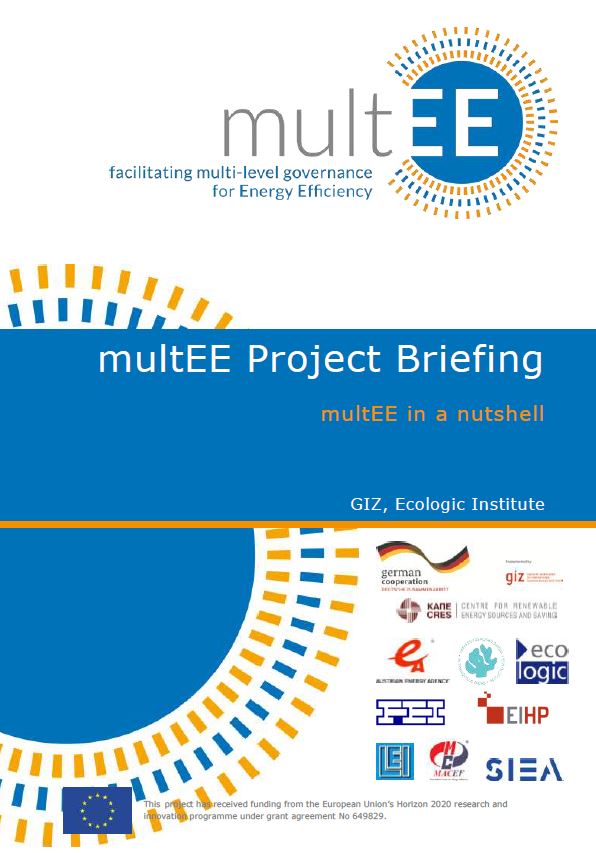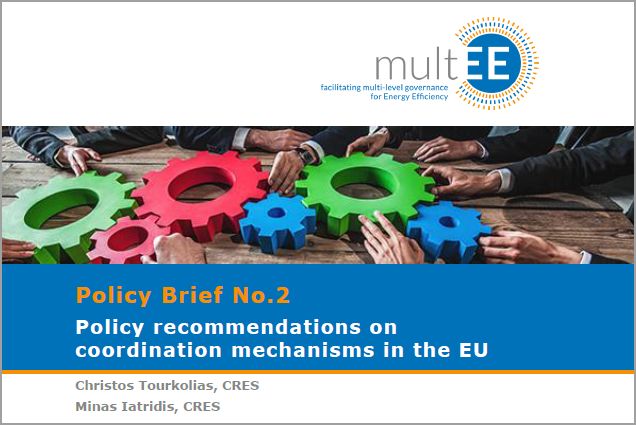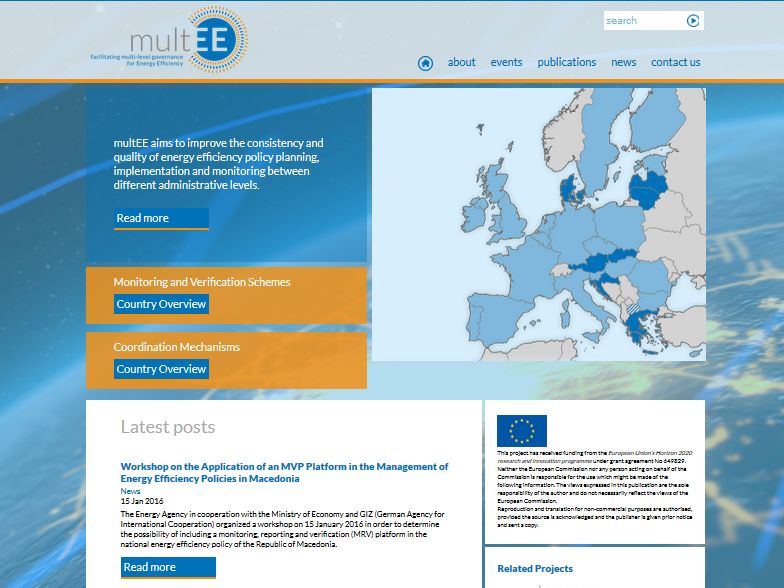Definition of a Data Collection Process for Bottom-up Monitoring
- Publication
- Citation
Andreas Prahl (ed.) 2017: Definition of a data collection process for bottom-up monitoring. multEE Policy Brief No.3
Efficient energy policies rely strongly on consistent and comparable data provided by a sound data collection process and robust monitoring and verification (M&V) procedures. The third multEE policy brief presents five concrete policy recommendations to guarantee an efficient data collection process as well as a systematic M&V process of the measures. The policy brief is available for download.
These recommendations focus on several aspects, including the involvement of stakeholders, the accessibility of calculation methodologies, the use of IT-tools for data collection, processing and reporting and an effective multi-level verification and control process.
As the multEE project aims to improve the quality of energy efficiency policy planning and effective coordination of energy policies on different administrative levels, a bottom-up calculation approach was chosen to estimate achieved energy savings.
To evaluate the impact of energy efficiency measures and the achievement of energy efficiency targets on national, regional or local levels, the multEE project also compiled a comprehensive Report with a variety of methods to calculate energy savings from single energy efficiency measures.
More details can be found in the 3rd Policy Brief, the full Report on data collection processes that served as basis to develop the brief.
The multEE project is led by Deutsche Gesellschaft für Internationale Zusammenarbeit (GIZ) and is funded by the European Commission's Horizon 2020 Programme. The consortium also includes Ecologic Institute (Germany), the Austrian Energy Agency (AEA), the Centre for Renewable Energy Sources and Saving (CRES), the Institute of Physical Energetics (IPE), the Energy Institute Hrvoje Pozar (EIHP), the Lithuanian Energy Institute (LEI), the Macedonian Center for Energy Efficiency (MACEF), the Slovakian Innovation and Energy Agency (SIEA) and the University of Roskilde (RUC).








